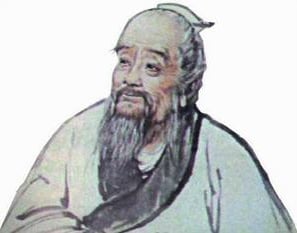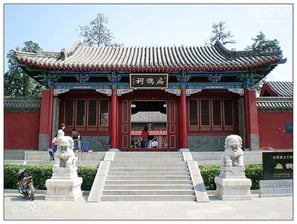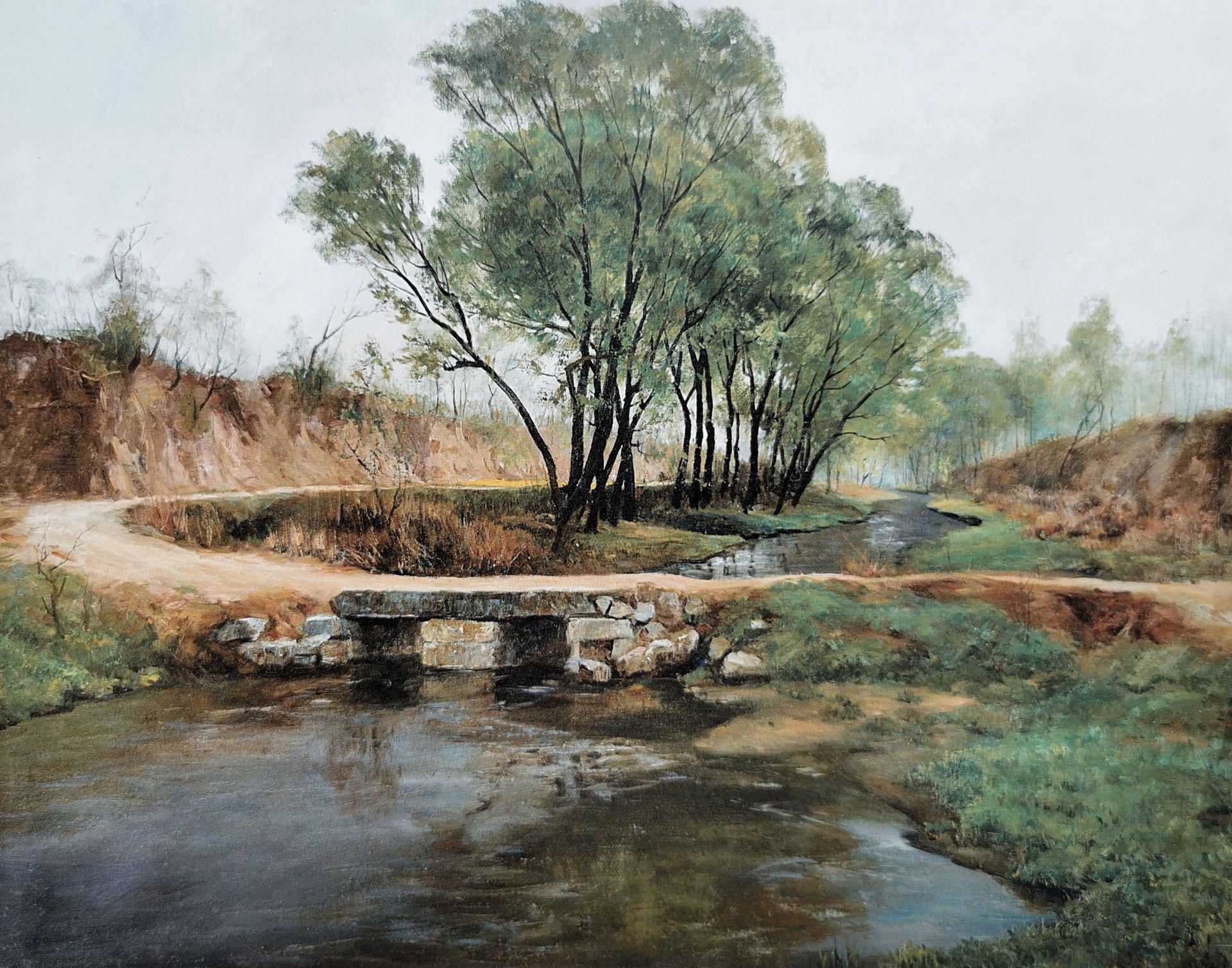
Chengfeng Shi Art Research Institute
Beauty of Home
I love my hometown,
Emerald hills and waters, a canvas in hand.
Golden fields, the sunshine of my heart,
Each inch of land, a chapter of hope's art.
I love my hometown,
Streams whisper, painting songs in the air.
Lakes reflect, casting dreamy glares,
There lies a haven for the soul, bound in reverie.
I love my hometown,
Children beneath tree shadows, smiles captured in brushstrokes.
Country charm, an eternal scene,
And the love of family, forever keen.
I love my hometown,
Wheat fields sway, in artistic display.
Orchard reds, sweetness in paint,
Such wonders bring endless thoughts to replay.
I love my hometown,
No matter where I go, where my heart might roam,
This land always sings for me,
My everlasting home, my paradise, eternally.
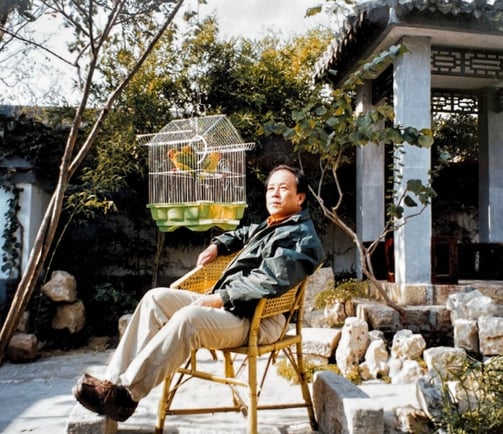


Tangyin County, Anyang City, Henan Province, is located in the northern part of Henan Province. It is named for its location south of the Tang River. Recognized by the United Nations as a millennium-old county, it is famed as the "Hometown of Three Saints" — the military saint Yue Fei, the literary saint King Wen of Zhou, and the medical saint Bian Que. Within its borders, there are many historical and cultural relics, including Yue Fei Temple, Youli City, Bian Que's tomb and temple, Baiying Longshan Cultural Site, Xihe Summer Capital Site, and Bei City Site. Tangyin has convenient transportation, with Zhengzhou, Shijiazhuang, Jinan, and Taiyuan, four provincial capital cities, located within 250 kilometers. The Beijing-Guangzhou Railway and Jinzhongnan Railway connect the north, south, east, and west, and the Beijing-Hong Kong-Macau Expressway and National Highway 107 crisscross the county.
Tangyin has long been at the center of civilization, a place of distinguished figures and beautiful landscapes.
Xia Dynasty: The ancient capital of the Xia Dynasty was located in Xihe Village, eight kilometers east of the city.
Shang Dynasty: Tangyin was part of the Shang capital's (Anyang Yinxu) periphery. King Wen of Zhou was imprisoned in Youli City, four kilometers north of the city, for seven years, where he interpreted the "Book of Changes" and eventually overthrew King Zhou of Shang to establish the Zhou Dynasty.
Spring and Autumn Period: Confucius and his disciples stayed in Beicheng, 16 kilometers east of the city, where they studied poetry and compiled 19 poems into the "Airs of Bei" section of the "Book of Songs." Confucius and his disciples also lived and taught in Kong Village, three kilometers east of the city.
Warring States Period: The name Dangyin began to appear. Wei prince Wuji (Prince Xinling) raised an army here to rescue Zhao. The famous physician Bian Que practiced medicine here for a long time and died in Fudao Township, east of the city.
Three Kingdoms Period: Cao Zhi visited Youli City to offer sacrifices and composed the poem "Questioning Zhou": "What merit did Chonghou have to become an assistant? What crime did Xibo commit to be imprisoned? The prison was established, the earth was filled. The establishment of cannon and caldron, harming the loyal and the upright."
Tang Dynasty: In the first year of the Zhenguan era (627), Tangyin was officially named and established as the county seat. Du Fu visited Tangyin, paid homage to the Ji Gong Shrine, and composed the poem "Lamenting Spring."
Song Dynasty: In the second year of Chongning of the Northern Song Dynasty, 1103, the famous national hero Yue Fei was born in Xiaoti Village, Yonghe Township, east of the county.
Qing Dynasty: During Emperor Qianlong's southern inspection and return to Beijing, he passed through Tangyin and visited Yue Fei Temple and Youli City (King Wen Temple), leaving behind two seven-character poems and sacrificial texts.
“My home town”
Tangyin's Three Saints
King Wen of Zhou won the people's respect with his wise governance, benevolent nature, and noble cultural accomplishments. He upheld Confucian principles of benevolence, ruled the state with virtue, emphasized the welfare of the people, reduced taxes, promoted agricultural development, and improved the living standards of his subjects. He also actively promoted cultural education, advocated for the status of scholars, and supported the study of literature, music, and rituals, earning him the posthumous title of "Literary Saint."
King Wen placed particular importance on the study of the "I Ching" (Book of Changes), organizing and developing it. It is said that during his imprisonment, he created the 64 hexagrams, transforming the "I Ching" from a primitive divination system into a classic that encapsulates cosmic philosophy and human wisdom. His contributions elevated the "I Ching" into a profound philosophical system that influenced later Confucian and Daoist thought. His wisdom, benevolence, and enlightened governance had a profound impact on the development of ancient Chinese culture and politics, leaving behind a valuable legacy, with the "I Ching" being one of the most outstanding representations.
During his imprisonment in Youli City of Tangyin, King Wen scrutinized the eight trigrams of the "I Ching" and further developed them into 64 hexagrams, transforming it into a comprehensive classic that embodies cosmic philosophy and human wisdom—the profound "I Ching."
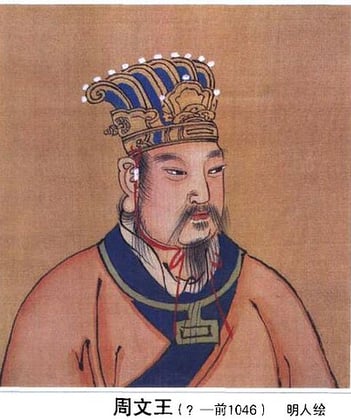

The Literary Saint, King Wen of Zhou

Yue Fei (March 24, 1103 – January 28, 1142), courtesy name Pengju, and art name Meigang, was a native of Yuejia Village, Tangyin County, Henan Province. He is celebrated as a renowned military general and national hero of the Southern Song Dynasty, known for his determination and courage in resisting the Jin Dynasty invaders and his profound loyalty to the country and its people.
Early Life and Military Talent: Yue Fei demonstrated exceptional martial talents from a young age. He joined the military and quickly distinguished himself in battles against the Jin Dynasty, earning numerous accolades. His army, known as the Yue Family Army, became famous for its strict discipline and outstanding combat effectiveness.
Military Achievements: Yue Fei's commitment to reclaiming lost territories and his unyielding resistance against the Jin forces made him a revered figure. His strategic genius and bravery led to several significant victories, bolstering the morale of the Song Dynasty's forces and populace.
Political Conflict and Tragic End: Despite his successes on the battlefield, Yue Fei's military career ended in tragedy. He fell victim to the political machinations of the powerful official Qin Hui, with whom he had severe conflicts. Yue Fei was falsely accused of treason, arrested, and unjustly executed in 1142.
Legacy and Symbolism: Yue Fei's life, marked by dramatic struggles and unwavering loyalty, left a profound impression on Chinese history. His image as a loyal, courageous, and resourceful leader has become a symbol of national spirit. His story has been immortalized in literature, drama, and art, continuing to inspire generations.
Key Sites:
Yue Fei's Birthplace: Yuejia Village, Tangyin County, where he was born and raised.
Yue Fei Temple: A shrine in Tangyin dedicated to honoring Yue Fei's contributions and preserving his memory.
Yue Fei's enduring legacy as a symbol of loyalty and patriotism remains an integral part of Chinese cultural heritage, embodying the virtues of courage, honor, and devotion to one's country.
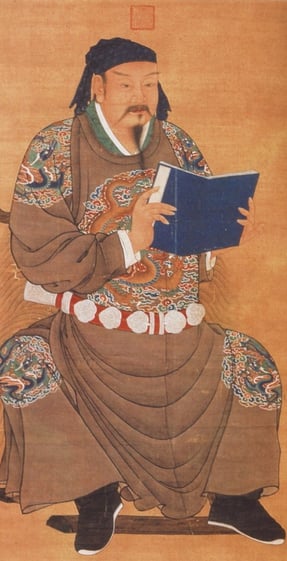

The Military Saint, Yue Fei
Bian Que, known as Qin Yueren, with the courtesy name Jinshang, is a celebrated figure in ancient Chinese medicine, often revered as the "Medical Saint." He was active during the Warring States period (475-221 BCE) and is considered one of the most important figures in the history of Chinese medicine.
Biography and Contributions:
Bian Que, originally from the state of Qi, was renowned for his profound medical knowledge and exceptional skills. Legend has it that he was well-versed in the three sections of the "Huangdi Neijing" (Yellow Emperor's Inner Canon), an ancient Chinese medical text.
Bian Que is famed for his expertise and high moral standards, earning him the title of the foremost among the four great ancient Chinese physicians. His medical prowess extended across various fields, including internal medicine, surgery, gynecology, and pediatrics. He was adept at treating common ailments and was skilled in acupuncture and massage therapy.
One of Bian Que's significant contributions was his emphasis on the prevention and early intervention of diseases. He advocated for the medical principles of "treating the undiseased before disease occurs" and "addressing disorders before they manifest." His theories and practices had a lasting impact on the development of traditional Chinese medicine.
Among the many legends and stories about Bian Que, the tale of "Bian Que Diagnosing Pulse" is the most famous. It is said that he could accurately diagnose the nature and stage of diseases through observation, listening, questioning, and pulse examination, and could even predict the progression of illnesses.
Bian Que spent much of his life practicing medicine in places like Anyang, Tangyin, and Handan. However, after curing a chronic illness of the Qin king, the jealous royal physician Li Xi bribed an assassin to kill Bian Que. The local people buried him and built a shrine in his honor, naming the village Fudao in his memory.
Images:
Medical Saint Bian Que
Bian Que Temple in Fudao Township, Tangyin County
